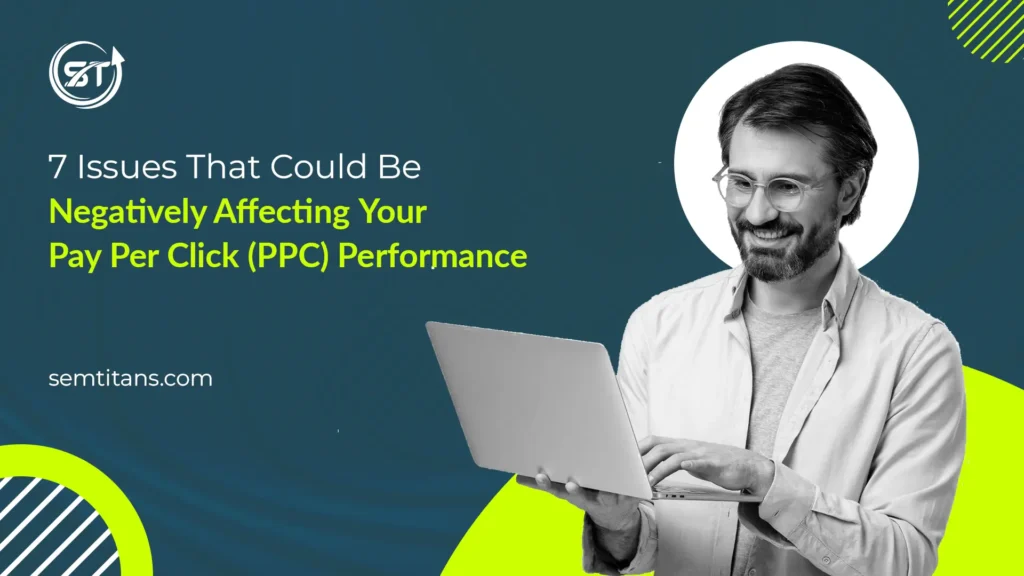
Effective Pay Per Click management is essential for maximizing ROI in digital advertising. It plays a critical role in improving your website’s reach. However, to reap the full benefits from Pay Per Click, you need to use it strategically. This involves optimizing ad spend, targeting the right audience, and addressing common PPC issues such as poor keyword selection, low-quality scores, and ineffective ad copy that can hinder performance.
But that’s not all. Continuously analyzing performance metrics is important. This ensures not only higher search engine visibility but also drives quality traffic to your website. Pay Per Click management is surrounded with several aspects that must be implemented correctly. Proper keyword selection and refining ad copy are just a few examples.
Regular monitoring and adjustments helps to prevent budget additional cost and improve campaign effectiveness. Ultimately, skilled Pay Per Click management can significantly boost conversions and increase brand awareness, solidifying its place as a vital component of any digital marketing strategy.
Table of Contents
ToggleA] 7 PPC Issues That Negatively Impact Your Performance
Pay-per-click advertising can potentially bring in a lot of targeted traffic and conversions. But even the best-laid campaigns can fail if they are besieged with issues at their base. Here are the seven issues that can be negatively affecting your PPC performance!
1. Strategy and Planning
Poor strategy and planning are among the most common PPC issues that limit campaign success. Without clear objectives, campaigns lack direction, leading to misaligned targeting that attracts the wrong audience and wastes budget. Inadequate keyword research results in low-quality traffic and poor conversion rates, ultimately eventually reducing effectiveness.
Failing to segment audiences properly prevents the delivery of tailored messages, reducing engagement. Additionally, neglecting competitive analysis may cause missed opportunities or inefficient bidding strategies. A lack of regular performance reviews prevents timely optimizations, causing stagnation and missed opportunities.
Ultimately, insufficient strategy and planning lead to inefficient resource use, decreased ROI, and failure to achieve desired business outcomes.
2. Improper Keyword Selection
Improper keyword selection can severely impact PPC performance by attracting irrelevant traffic, leading to low click-through rates (CTR) and poor conversion rates. Using broad or irrelevant keywords waste ad spend on users who have no interest in your product or service, decreasing ROI.
Additionally, high-competition keywords can skyrocket costs without guaranteeing quality leads. Poor keyword targeting also weakens ad relevance and quality scores, resulting in higher costs per click (CPC) and lower ad placements.
To avoid these issues, thorough keyword research, understanding user intent, and continuous keyword optimization are essential for maintaining effective and efficient PPC campaigns.
3. Ad creation and optimization
Ad creation and optimization are fundamental aspects of PPC performance. Poorly designed ads with irrelevant keywords or weak calls-to-action fall flat, failing to attract clicks, reducing overall ad effectiveness. Ineffective targeting leads to low-quality traffic, increasing costs without driving conversions.
When the optimization strategy is not on point, PPC ads management suffers. Moreover, without continuous optimization, ads can become outdated and lose competitiveness. A/B testing, refreshing ad creatives, and refining targeting criteria are essential tools to address these issues. Properly optimized ads increase click-through rates (CTR), lower cost-per-click (CPC), and improve overall campaign ROI, maximizing PPC success.
4. Bidding Strategies
Bidding strategies directly influence PPC performance. Improper bidding can lead to overspending or missed opportunities on valuable clicks. Manual bidding requires constant adjustments and expertise to maintain optimal costs and a competitive edge in the competition.
However, automated bidding strategies, like Target CPA, may not always align perfectly with specific campaign goals. They can sometimes misjudge user intent, leading to poor ad placements, reduced visibility, and low click-through rates.
Additionally, neglecting competitor analysis and market fluctuations can lead to ineffective bids. Therefore, a well-planned, flexible bidding strategy regularly reviewed and adjusted is essential for maximizing PPC campaign success and ROI.
Additionally, neglecting competitor analysis and market fluctuations can render your bids ineffective. Therefore, a well-planned, flexible bidding strategy that considers these factors is important. Regularly reviewing and adjusting your strategy is crucial for maximizing the benefits of PPC campaign success and ROI.
5. Performance Tracking and Adjustment
Performance tracking and adjustment are critical yet challenging aspects of PPC management. Without accurate tracking, it’s difficult to gauge campaigns’ effectiveness, potentially leading to wasted budget on underperforming ads.
However, inadequate or infrequent adjustments can result in missed opportunities for optimization. This may involve refining keywords, improving ad copy, or adjusting bids to seize missed opportunities. Additionally, incorrect data interpretation can steer the campaign in the wrong direction, reducing ROI.
Real-time tracking and proactive adjustments are necessary. They help respond to market changes and competition, ensuring the PPC strategy remains aligned with business goals and continues to drive desired outcomes efficiently.
6. Budgeting and Spend Management
Budgeting and spend management directly affect PPC performance. Inadequate budgeting can limit ad exposure, reducing visibility and click-through rates. Conversely, overspending without strategic targeting wastes resources on low-quality traffic. Inefficient allocation across campaigns or keywords can lead to missed opportunities and poor ROI.
Frequent budget adjustments are necessary to respond to market changes, competitor actions, and campaign performance. Prioritize proactive monitoring to avoid budget exhaustion before the end of a campaign period, halting ad visibility.
Effective budgeting requires balancing investment and return. This involves regular performance analysis and strategic reallocation of resources to high-performing areas. By doing this, you can maximize ROI and ensure sustained campaign success.
7. Hiring Incorrect PPC Managers
Hiring the wrong PPC manager can severely impact PPC performance. Incompetent managers may misallocate budgets, target irrelevant keywords and audiences, and waste ad spending. Poorly crafted ad copy and ineffective landing page strategies lead to low click-through and conversion rates.
A lack of analytical skills can prevent campaign optimization by preventing identification of issues and opportunities. Inadequate monitoring and adjustments fail to respond to market changes, diminishing overall results.
Ultimately, this can lead to decreased ROI, lost competitive advantage, and missed business growth opportunities. This underscores the importance of choosing experienced, knowledgeable PPC managers who can steer your campaigns towards success.
Wrapping up
Addressing these 7 factors affecting PPC performance is important. By identifying and rectifying these potential problems, you can:
- Optimize ad spend for maximum impact
- Improve targeting to reach the right audience
- Boost conversions and drive business growth
Regular monitoring and strategic adjustments are essential to staying ahead of the curve in the ever-evolving digital landscape.
Investing in skilled PPC management ensures your campaigns achieve their full potential. This translates to significant business growth and maximized ROI. Take proactive steps today to elevate your PPC strategy and secure a competitive edge in the market.












